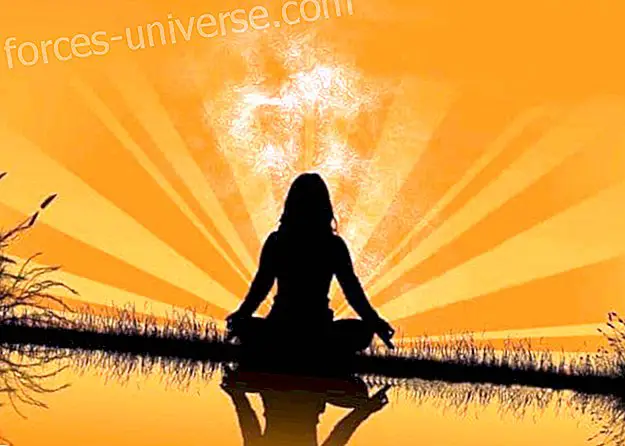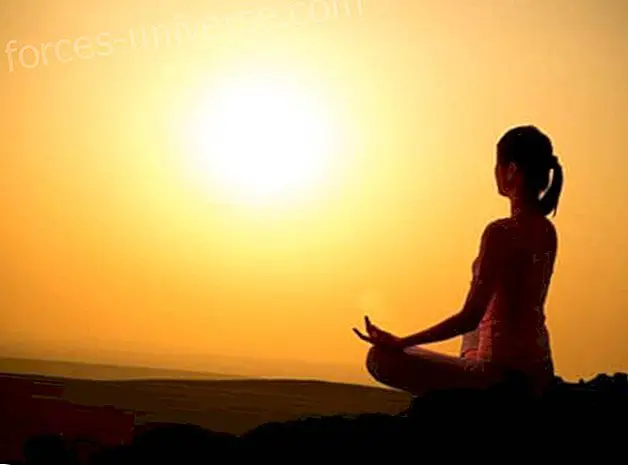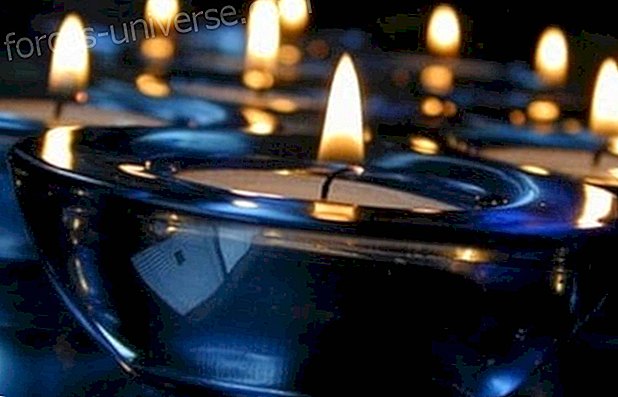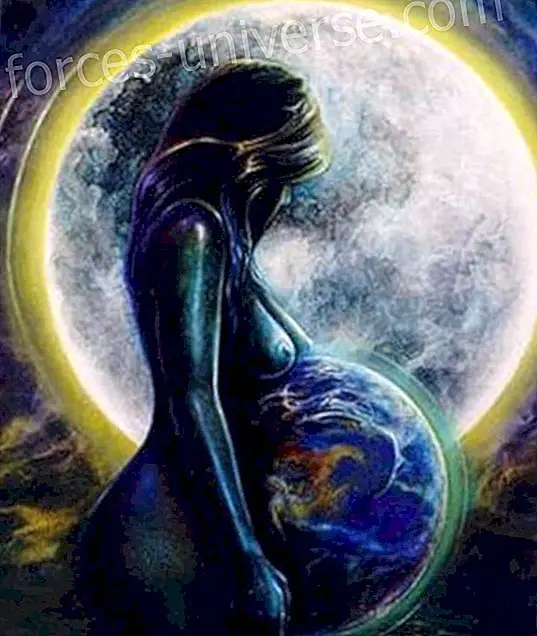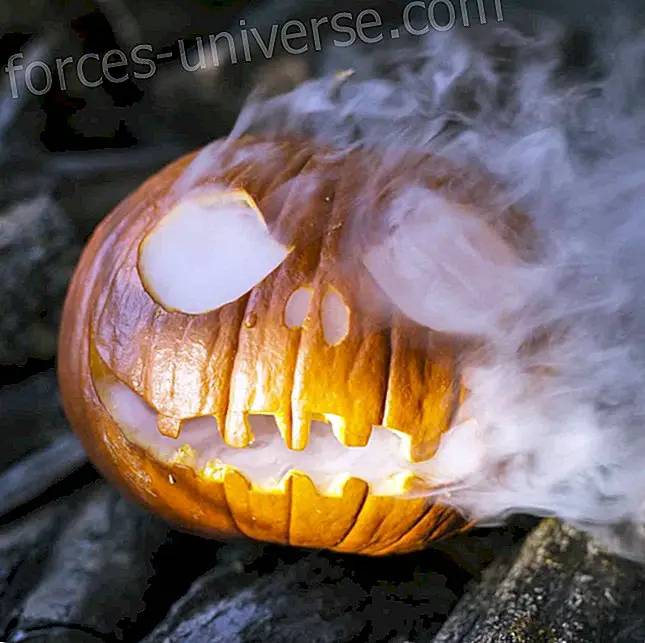Who am I? Why am I here? What is the meaning of life?
On the main transcendental issues that every human being asks at some point in his life, who am I? Why am I here? What is the meaning of life? ... The " purpose of life " occupies, without a doubt, a very prominent place in this repertoire of existential questions.
The Austrian psychiatrist Viktor E. Frankl argues that, just as there exists in the human being an unconscious in which those instincts destined to sustain the organic life of the body and try to keep it safe from any threat that could jeopardize its survival are housed ; there is also another type of unconscious that Frankl calls " spiritual unconscious ", which is where our existential instinct would be housed. He suggests that what is human in man is precisely that distinction between the spiritual and the merely instinctive and adds that he becomes a true human being when he stops acting on impulses and takes responsibility for his own existential experience.
In his work " In search of the ultimate meaning " Frankl argues that the spiritual phenomenon can be conscious or unconscious, but in any case, the spiritual basis of all human existence is, ultimately, always unconscious. This is related to the thought of Carl Jung who also affirmed that the unconscious was not in any case the surplus part of the conscious but that it was endowed with its own content. Creativity was undoubtedly for Jung one of those attributes that awaited in the unconscious the moment when he was allowed to surface.
purpose of life
Aspects such as art, imagination, fantasy, play, magic, illusion, beauty and even love and conscience, reside by some kind of psychophysical order in the spiritual unconscious of the human being, but it is enough that it allow them their free expression so that all this comes out spontaneously. The purpose of each person's life or, if preferred, their destiny, also lies in this spiritual unconscious. Discovering what it is, that is, making it conscious, does not have much mystery. The difficulty may be in the fact of not being able to admit its simplicity or simplicity since we tend to associate it with professional success, great personal achievements and social recognition. But the true purpose of a person's life is simply related to what he enjoys, what he likes to do, what he is good at and what he feels satisfied and accomplished . It is that special talent or vocation for something in particular that shows us the way. Whoever feels passion for drawing, painting, music, literature, science, philosophy, politics, culture, sports or any other activity, will probably be his expression in one of those areas of interest that will give Greater meaning to your life. There is no need to have to stand out above others or gain recognition. Just as the purpose of a flower is to bloom and even when there is no one observing its beauty, it blooms and expands its fragrance to the four winds, the simple fact of living is also for the human being a purpose in itself. The experiences of a life of opulence and waste are as valuable as those of a simple and austere life. All of them imply certain teachings that will surely have their reason for being. The purpose of life gives meaning to our life in its soul aspect, but the soul is only part of the Being. What the soul experiences enriches the Being, but this in turn pursues a greater purpose, which is common to the rest. of the beings of creation.
This last and definitive purpose that underlies the deepest part of our spiritual unconscious is the cause of this permanent feeling of dissatisfaction or emptiness that we try to fill in a thousand different ways. Until we discover what that ultimate destiny is and we turn towards it with full conviction, determination and in a conscious way, we will never be able to fill that emptiness that accompanies us everywhere we go wherever we go and do what we do. This Ultimate Meaning is the answer to the why and why of our presence in the world and nothing better to try to explain it than resort to the much-mentioned parable of the prodigal son :

Jesus told them this parable: A man had two children; and the youngest of them said to the father: "Father, give me the part of the inheritance that corresponds to me." And he distributed the inheritance to them. A few days later, the youngest son gathered everything and left for a distant country where he wasted his inheritance living as a rake. “When he had spent everything, extreme hunger ensued in that country, and need began to pass. Then, he went and settled with one of the citizens of that country, who sent him to his farms to feed pigs. And he wanted to fill his belly with the carobs that the pigs ate, but nobody gave them to them. And entering himself, he said: “How many day laborers of my father have bread in abundance, while I am starving here! I will rise, go to my father and say: Father, I sinned against heaven and before you. I no longer deserve to be called your son, treat me like one of your day laborers. And, getting up, he left for his father. While he was still far away, his father saw him and, moved, ran, threw himself on his neck and kissed him effusively. The son said to him: Father, I sinned against heaven and before you; I no longer deserve to be called your son. But the father said to his servants: Bring the best dress fast and put on his clothes, put a ring on his hand and sandals on his feet. Bring the primed steer, kill him, and let's eat and celebrate a party, because this son of mine was dead and has come back to life; He was lost and has been found. And they started the party. His eldest son was in the field and, when he returned, when he approached the house, he heard music and dances; and calling one of the servants, I asked him what that was. He said to him: `` Your brother has returned and your father has killed the primed steer, because he has recovered healthy. '' He became irritated and did not want to enter. His father went out and begged him. But he replied to his father: `` I've been serving you for so many years, and you never stopped fulfilling an order of yours, but you've never given me a kid to have a party with my friends; Now that this son of yours has come, who has devoured your inheritance with prostitutes, you have killed for him the fattened bull! But he said to him: Son, you are always always s with me, and all mine is yours; but it was convenient to celebrate a party and rejoice, because this brother of yours was dead, and has come back to life; He was lost, and has been found.
(Luke 15: 11-32)
infinite mercy of God
Many and varied are the readings and interpretations that can be made of this parable depending on where you want to put the accent and intention. From a Christian perspective the main teaching is the importance of true repentance as well as the infinite mercy of God . It highlights the image of a benevolent and compassionate God who loves his children equally, both those who remain close to him, representing the righteous and the faithful, as well as those who leave home, representing sinners, those infidels and the lost sheep. We could even add that the misfortune in which the prodigal son falls is not due to any kind of divine punishment but is the result of a life of excess and debauchery, that is, as a result of his Actions. There are other interpretations in which we would probably also find valuable messages and interesting meanings, but this time, the one that best fits the context we are referring to is the following:
The Father's House is our Home, there we have everything: love, peace, well-being, happiness, security and everything we want. In appearance nothing is missing, but then ... why abandon it? What could we miss so much that, like the prodigal son, we decided to leave? What is it so necessary that we do not have? Only one thing occurs to me. The Experience
It is not easy to understand and explain the concept of "experience", but I think we will all agree by stating that what is experienced in our own flesh produces a different knowledge from other types of knowledge. Experience is not an indirect, theoretical or intellectual knowledge, but a living and practical knowledge ; a vital knowledge that acquires the certainty of the reality that has been experienced and that remains in one as a known experience or " wisdom ." Other methods of knowledge such as the intellectual or the scientist cannot provide the same degree of knowledge as that of the experience itself. What has been lived, felt, enjoyed or suffered, undoubtedly produces much greater knowledge. It should be noted that there are also different levels of experience depending on how that experience was lived. True experience includes awareness of the experience . Not being aware of an experience is equivalent to not owning that experience since it can pass directly to the subconscious without one becoming aware of it. We would be talking in such a case about an experience. The experience is instinctive and transient, it is not retained or discerned, it is not consciously integrated into the Being. A true experience is instead that experience that is consciously integrated and that our Being processes, discerns and personalizes . Experiences lived in a conscious way are those that provide a wisdom that positively transforms the person.
So the only lack of our divine nature is this wisdom that can only be obtained through experiential experience . This yearning for fulfillment is what finally pushes us to abandon the comfort of home and to undertake the journey. Without going any further, it is something similar to what happens to the majority of young people who still living comfortably in their parents' house, there comes a time when what they most want is to be able to emancipate themselves and live their own lives despite the difficulties that this may lead them. When the time comes, those parents who were once entrusted with their care and education should not only be able to leave them in complete freedom, but should feel happy and proud to see in them the courage and determination of those who decide to take The reins of their lives.

This is described by José Saramago ( Nobel Prize for Literature ):
“Son is a Being that God lent us to do an intensive course on how to love someone more than ourselves, how to change our worst defects to give them the best examples and, from us, learn to have courage. If that is! Being a mother or father is the greatest act of courage that someone may have, because it is exposing oneself to all kinds of pain, mainly from the uncertainty of acting correctly and the fear of losing something so loved. To lose? How? It is not our? It was just a loan ... The most precious and wonderful loan since they are ours only as long as they cannot fend for themselves, then it belongs to life, destiny and their own families. God always bless our children because he already blessed us with them. ”
No one pushed us to it nor did anyone hold us back.
This is the trip that like the prodigal son, we have all decided to undertake at some point in our existence. Nobody pushed us to it nor did anyone keep us . As we can see in the parable, the Father, at the request of the son, agrees to hand over his share of his inheritance in advance and lets him leave with absolute freedom, without reproaches or warnings. On this trip it is our incessant curiosity that takes us to the most remote and remote places of our home. And since the home represents the state of greatest fulfillment, the greater the distance, the greater the feeling of unhappiness, dissatisfaction and emptiness. Experiencing, however, this remoteness and this emptiness is what will finally lead us on the way back home. This was the case with the prodigal son when after having squandered all his money he began to starve and need; That was when ... " getting up, he left for his father."
It is at the furthest point where the transformation begins. It is when we finally discover that it is not worth taking another step in that direction and we decided to turn around. There begins the true journey, the return . The outward path has no value in itself, does not require any effort on our part, it only consists of dropping to the deepest and most dense of the matter, place from which, based on much humility and perseverance you can Slowly and progressively begin the long way back. The descent is like falling into a deep sleep in which we remember absolutely nothing about who we are, where we come from and where we are going; a dream that we will only wake up to the extent that each of our experiences provides us with knowledge . The return trip is the path of reintegration to the One Being, an ascending journey that will lead us back to the place to which we belong, so that once at Home, the bliss can be complete . There will be no more desires to be satisfied or lacks to be filled. We will have achieved the authentic Plenitude of Being .
But let's see what role the other characters in the parable play. The elder brother, by the mere fact of staying with the father, does not represent the archetype of fidelity or loyalty, but rather that of conformity and insecurity. We see in the parable the envy felt by the firstborn to know the joy of the father during the reunion with his younger brother, who as if that were not enough, he organizes a party in his honor when he, who has always remained by his side and He has behaved like an exemplary son, he never gave him this treatment. Faced with such a situation, the older brother feels unhappy, belittled and even frustrated at not understanding his father's reaction. He does not understand that his father loves both of them equally, whatever they are and do whatever he wants them to do. If the older brother had been a completely happy, happy and full person, seeing his brother arrive he would have had exactly the same reaction his father had, but it was not. This point of envy reveals its lack . The fact of never having left the home or having moved away from the father makes it impossible to fill a void that prevents him from feeling the complete happiness. Maybe in the future he will be able to arm himself with courage and decide to emulate his brother.
The father represents without a doubt the Father / Mother Creator of All That Is and the Unconditional Love that governs the entire universe. It is not possible to appreciate in him anything other than pure love, kindness and compassion. Returning to the Home is returning to the Father, and when this happens, Father and Son merge into such an immense embrace of love that it is no longer possible to distinguish one from another since both have become One . This is the integration of the Son (of Being) into the Father (Absolute). It is the ultimate destination to which we are all called .
For all to be one;
like you, oh Father, in me, and I in you,
may they also be one in us;
so that the world believes that you sent me.
(John 17:21)
The Word of God became Man
so that we could learn from a man,
How a man becomes God.
(Clemente de Alejandr a)
Author: Ricard Barrufet
Excerpted from the book: Existence Plans, Consciousness Dimensions

